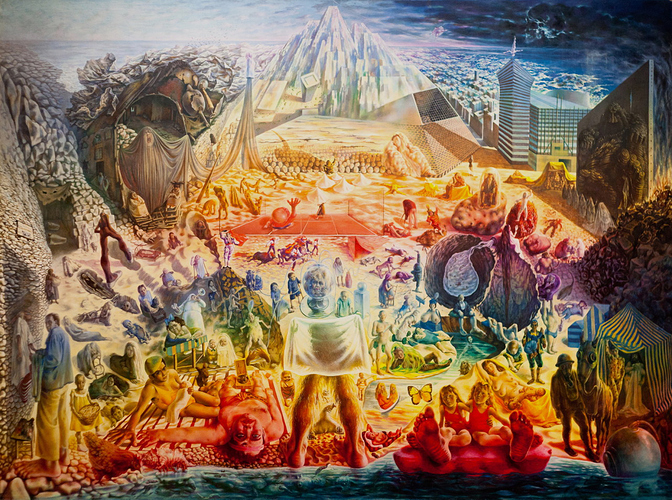At the New York Review of Books website, celebrated sci-fi author Jeff VanderMeer writes about a fellow sci-fi author active in the 1960s and '70s whose brilliant work has been unjustly forgotten. David R. Bunch, who passed away in 2000, was a cartographer by day and a writer of lyrical, prescient, dystopian sci-fi stories by night. As Jeff VanderMeer writes, these stories depicted a world of dictatorial control, runaway technology, and human alienation from the natural environment. At their best, they transcended the divide between literary and genre fiction. (Thankfully, they’ve been collected and reissued this month by New York Review Books in a volume entitled Moderan.) Here’s an excerpt from VanderMeer’s piece:
Yet, in the years since his most prolific period, the nightmarish dystopia he imagined has begun to look increasingly prescient, even prophetic. In Moderan, men who have violently transformed themselves into cybernetic strongholds battle across an Earth paved over with plastic and tunneled under with living quarters. Creature comforts for these men—who are portrayed with sympathy but, first and foremost, as products of a culture of toxic masculinity—include sex robots and seasonal cheer, from spring flowers to Christmas wreaths, regulated by technocrats.
Replace nuclear annihilation with climate change and over-industrialization, and Bunch’s future feels psychologically and metaphorically akin to our modern situation. What are we doing right now but paving over our future with plastic? All while increasing our alienation from nature just as we ought to be doing precisely the opposite. In Bunch’s tales, men become fortresses, trapped in remade bodies that personify ritualized aggression. These bodies are literally and figuratively sequestered from any vestige of the nonhuman world.
Image: Pavel Tchelitchew, Phenomena, 1938. Via NY Review of Books.
